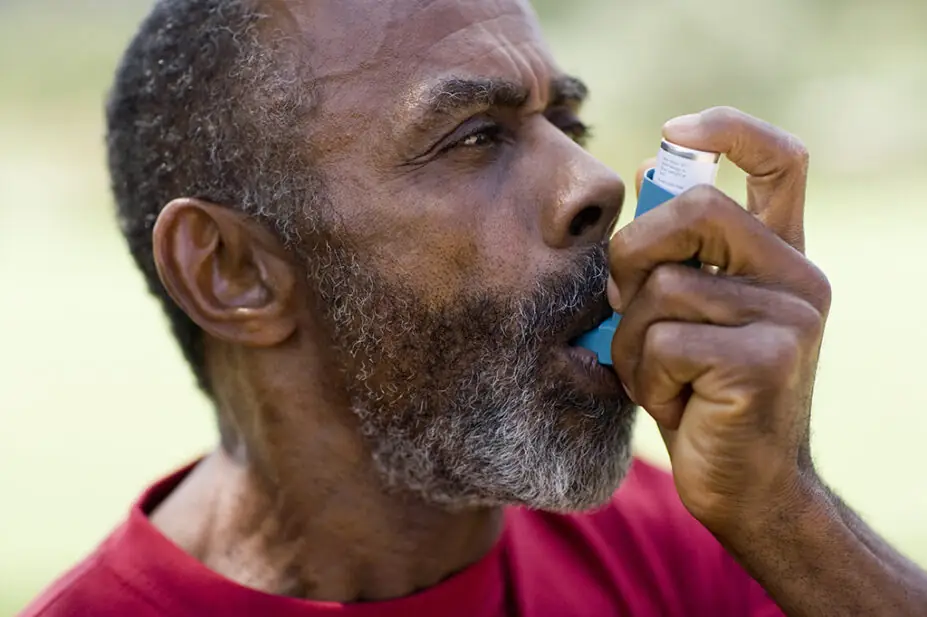
IAN HOOTON/SCIENCE PHOTO LIBRARY
More than 12,000 people in the UK died from asthma attacks between 2014 and 2022, with a 23.7% increase in asthma deaths during the same period, the charity Asthma + Lung UK has found.
In a statement published on 24 April 2024, Asthma + Lung UK said that “shockingly little” has changed for people with asthma in the UK since 2014 when ‘The National Review of Asthma Deaths’ (NRAD) was published, reporting that two thirds of asthma deaths are preventable.
The NRAD report recommended that “an assessment of inhaler technique to ensure effectiveness should be routinely undertaken and formally documented at annual review, and also checked by the pharmacist when a new device is dispensed”.
Following the report, NHS England included incentives for pharmacists to carry out inhaler checks as part of the Pharmacy Quality Scheme (PQS).
However, Asthma + Lung UK said that a survey of 8,766 people with lung conditions found that 69% of people were not receiving basic asthma care, defined as receiving an annual asthma review, an inhaler technique check and a written asthma action plan.
The statement added that “increasingly stretched healthcare professionals don’t have the resources to provide people with the support they need”.
“Asthma + Lung UK is calling on the government to introduce national targets to end preventable asthma deaths,” it said.
“The charity says[the government] must also dedicate sufficient funding to implement the upcoming NICE [National Institute for Health and Care Excellence] asthma guidelines, ensuring everyone with the condition receives vital basic care.”
In the UK, there are 5.4 million people living with asthma, with 4 deaths resulting from the condition each day and tens of thousands of patients admitted to hospital for life-threatening asthma attacks each year, the charity said.
Darush Attar-Zadeh, clinical fellow respiratory pharmacist at North West London Integrated Care Board and co-chair of the Taskforce for Lung Health medicines optimisation working group, said: “Unfortunately, as per NRAD recommendations, there are many lessons we all need to take on board and implement. There have been a few child deaths in my local area which alarms me.
“Pharmacy teams can make a real difference in proactively supporting people living with asthma, [and] many respiratory-related services are reimbursed, e.g. PQS, New Medicines Services, Discharge Medicines Services, and Pharmacy First.”
“One important recommendation is to optimise the use of inhaler technique through observation and coaching. This will improve lung deposition of the treatment,” he added.
Andy Whittamore, a GP and clinical lead at Asthma + Lung UK, said: “Too often I see people with asthma who have reached a point where they are in danger.
“They don’t recognise when they need to seek help — for example, when they are using their blue reliever inhaler three or more times a week. It shouldn’t get to the point where someone is rushed to hospital fighting for breath.”
He added: “We need better awareness of the seriousness of asthma, and a focus on supporting people to manage their condition themselves, while healthcare professionals need to have the training, time and resources to understand each individual to ensure they get the basic care they need.
“Good asthma care can really help people get a handle on their condition, so that it has a minimum impact on their day-to-day lives.”


